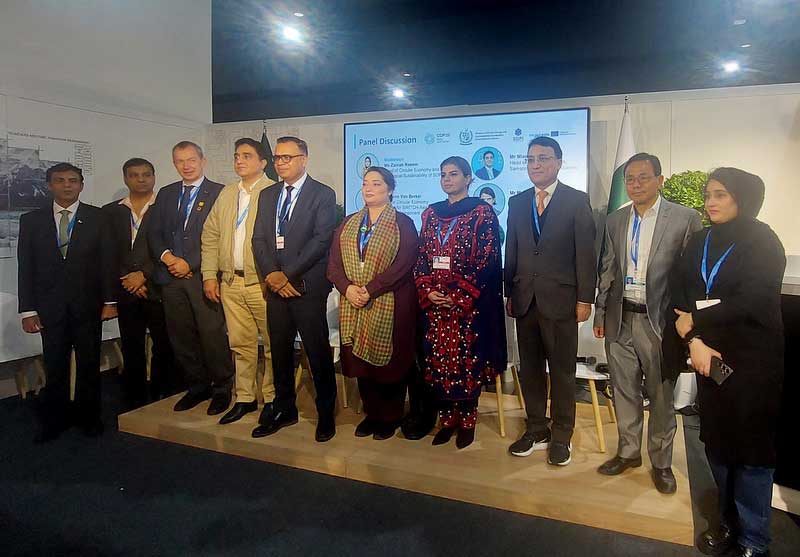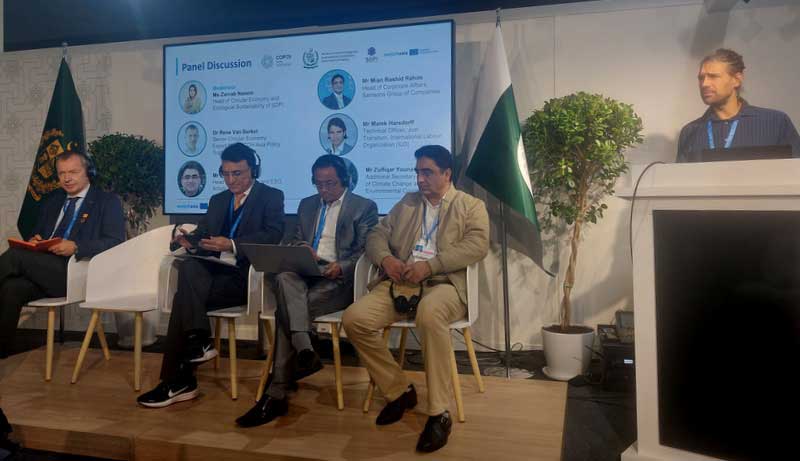November 25, 2024

The Ministry of Climate Change and Environment Coordination of Pakistan, in collaboration with the EU SWITCH-Asia Policy Support Component and the Sustainable Development Policy Institute (SDPI), hosted the side event "Circular Economy and Sustainable Consumption and Production in NDC 3.0 of Pakistan" at the Pakistan Pavilion on November 18, 2024 during UNFCCC COP29 in Baku, Azerbaijan.
This event aligned with one of COP29's central discussions, the Global Stocktake (GST) of the Paris Agreement. This critical process aims to enhance global ambition by informing the development of more robust nationally determined contributions (NDCs) by March 2025. The GST also serves as an opportunity to evaluate the urgent need for increased action and support to address climate change.
The panel discussion, moderated by Ms. Zainab Naeem, Head of Circular Economy and Ecological Sustainability at SDPI, featured insights from representatives of the government, private sector, and international development partners. The discussions highlighted the urgent need to address unsustainable consumption and production patterns, which are recognized as drivers of the triple planetary crises—climate change, biodiversity loss, and pollution.
Director General of SACEP, Mr. Norbu Wangchuk, presented the Plastic-free Rivers and Seas for South Asia (PLEASE) project, emphasizing its role in advancing circular economic solutions across the South Asian region. He called for regional unity in addressing plastic waste, stating, “Only through collaboration among nations, communities, and stakeholders can we hope to address plastic waste. Regional unity and shared commitment are essential to a sustainable future.”
The event underscored the importance of integrating circular economy principles into NDC 3.0 to foster sustainable development and accelerate climate action globally. It also highlighted the necessity of collective action to tackle the challenges of plastic pollution and promote sustainable consumption and production patterns.

